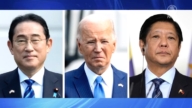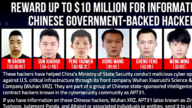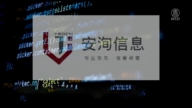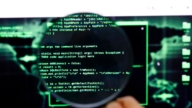【新唐人2011年6月4日讯】谷歌声明Gmail电子邮件服务的一些账户,受到来自中国济南地区的黑客攻击后。这一消息迅速得到世界各地媒体的广泛报导。中共外交部反驳谷歌有关黑客窃密指控。对此,美国联邦政府就谷歌提出的指控展开调查。那么,到底谁是黑客幕后的操纵者呢?请看报导。
谷歌宣布美国官员的Gmail邮箱,遭中国黑客严重袭击,惊动了白宫和美国国土安全部。美国匆忙评估事件是否造成国家安全受损问题。白宫声称针对黑客攻击,目前已经采取行动。
美国国务卿希拉里.克林顿周四(6月2日)表示,美国政府非常严肃的看待谷歌提出的指控,认为中国黑客入侵事件“非常严重”,美国将严肃对待。美联邦调查局正与谷歌一起,调查有关的黑客行为。
《美国之音》报导,对于美国来说,“网络安全”目前已经被提到了“外交事务”的首要日程上来。美国国务院最近专门任命了一位网络安全协调人,集中研究信息如何被盗、以及如何降低冲突的危险。
尽管,白宫方面表示,目前没有理由认为政府部门的电子邮件遭到侵袭。谷歌也没有具体说明到底都有哪些美国政府官员的电子邮件受到攻击、以及他们的电子邮件信箱被暴露有多长时间。不过,克林顿国务卿表示,美国认为,网络安全将是一个持久的问题,对此十分重视。
谷歌发言人杰伊.南卡洛(Jay Nancarrow)书面回答《美国之音》,他说:“我们相信这次盗窃用户密码的活动,是来自中国济南。我们无法确切说明谁是操纵者?”
6月2号,中国(共)反驳了谷歌的指控。中国外交部发言人洪磊表示,对于谷歌公司的指控无法接受。
谷歌公司在声明中表示,他追踪到这些黑客是来自中国的山东省会济南。在济南,中国(共)解放军设有技术侦察局和一所技术学院。
《美国之音》也证实,去年,美国调查人员在调查对谷歌用户一起类似的黑客攻击时,也追索到同一地点。
《美国之音》还报导,自从谷歌公司因为网路新闻检查和黑客攻击事件,而于2010年上半年部分退出中国市场后,谷歌公司和北京的关系一直紧张。去年,《纽约时报》指认,济南的“蓝翔技术学校”,是对谷歌发动所谓的“极光行动”攻击的两个教育机构之一。
英国记者麦特.沃尔曼在《电讯报》中指出,北京强烈谴责谷歌所说的:中国(共)处心积虑,试图打入美国政府高官和中国活动人士电子邮件账户的说法,是’不可接受的’,中国(共)不姑息宽恕黑客行为。但黑客行为在中国,有许多网站提供价格低廉的教程,让人可以学到黑客基本功。
上个月,人权网站change.org表示,这个网站自从发起网上运动,要求释放艺术家艾未未以来,网站反复遭受来自中国的攻击。现在不清楚攻击者的身份以及他们的动机,但谷歌指认济南是网络攻击的发源地,这跟先前网络安全专家进行的调查思路是一致的。
日本6月2号的《每日新闻》则报导说,现在还不清楚受害者当中,是否包含日本政府官员。
新唐人记者唐睿、孙宁综合报导。
Who’s Hackers’ Manipulator?
The news of some Google Gmail accounts having
been attacked by hackers from Jinan, China
has quickly gained worldwide media coverage.
Chinese Department of State refuted allegations
of Chinese hacking Gmail to steal information.
U.S. has started investigation on Google’s allegations.
Who is the behind-the-scenes manipulator?
As per Google, some U.S. officials’ Gmail accounts
were under serious attacks by Chinese hackers.
The U.S. Department of Homeland Security is
assessing the potential damages to national security.
The White House said it had already taken actions.
U.S. Secretary of State Hillary Clinton said on June 2,
the U.S. government considers the hacking incident
to be “very serious”, and it will be treated seriously.
FBI is working with Google to investigate.
Voice of America (VOA) reported, “network security"
was already included on U.S. foreign affairs agenda.
U.S. State Department has recently appointed a
network security coordinator, who focuses on
how info is stolen and how to reduce the risk.
The White House said there is no reason to believe
government department email accounts were attacked.
Google didn’t disclose details on the U.S. officials,
whose e-mail accounts were attacked. As per Clinton,
U.S. believes network security is a persistent issue
and attaches great importance to it.
In Google spokesman Jay Nancarrow’s written reply
to VOA, he said the campaign of stealing passwords
is believed to originate from Jinan, China.
They cannot specify who the manipulator is.
Chinese authorities refuted Google’s allegations.
On June 2, China Department of State spokesman
Hong Lei said Google’s charges were unacceptable.
Google said in a statement, the hackers were traced
to Shandong Province’s capital Jinan. In Jinan,
there is a military technological investigative bureau.
VOA confirmed that in 2010, one U.S. investigation
of hacker attacks on Google account users
traced back to the same location.
As per VOA, after Google withdrew from China
due to news censorship and hacker attacks in 2010,
its relationship with Beijing has been tense.
In 2010, New York Times identified Jinan’s
Lan Xiang Technical School to be one of the
two educational institutions that attacked Google.
British journalist Matt Warman wrote on Telegraph:
Beijing strongly condemned Google’s allegations of
the regime trying to break into U.S. officials and
Chinese activists’ mail accounts to be “unacceptable”.
However, in China, many websites provide
cheap tutorials on basic hacking skills.
In May, Human Rights website change.org said that
since it launched an online campaign to rescue
Chinese dissident artist Ai Weiwei, it has been
subject to cyber attacks from China.
The attackers’ identity and their motive are unclear.
Google’s identification of Jinan as hackers’ location
is in line with the findings of previous investigations.
On June 2, Japanese paper Mainichi reported, it is
unclear if any Japanese officials are victims.
NTD reporters Tang Rui and Sun Ning



























